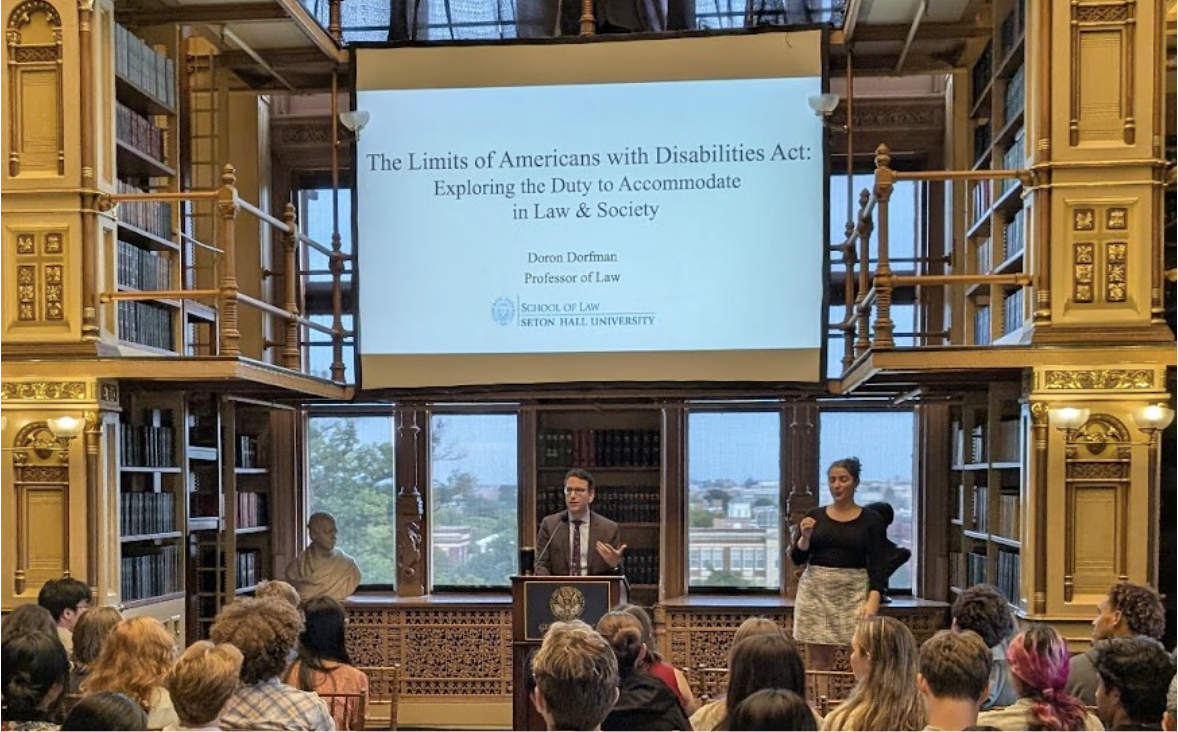A sociology professor at Georgetown University chaired a March 13 panel with a community activist and teenagers involved in sustainable farming, in advance of the release of her new book.
Yuki Kato, an associate professor, wrote her book, “Gardens of Hope: Cultivating Food and the Future in a Post-Disaster City,” on the role of urban gardening in New Orleans’ disaster response and rebuilding following Hurricane Katrina. The student speakers work at Grow Dat Youth Farm, an organization that gathers and trains young people in New Orleans in sustainable urban agriculture.
In the years after Katrina, farms, gardens and green spaces around the city have emerged as a tenet of New Orleans’ rebuilding. The urban agriculture movement aims to bring diverse groups of people together to increase both food security and appreciation.
The community activist, Pamela Broom, said land access is a major challenge facing urban gardening initiatives in New Orleans.
“Land access for urban farming, certainly in the city of New Orleans and many other places, is very difficult — to get it and to sustain it,” Broom said at the event.
Grow Dat, located in New Orleans’ City Park, is an example of urban agriculture that has flourished in recent years. Staffed by local high school students and led by graduates of the program, the farm has produced over 50,000 pounds of food annually since 2022 using sustainable methods such as avoiding pesticides, rotating crops and cover cropping, the practice of growing specific crops such as grasses to protect and enrich the soil underneath.
Sara Smith, a program operations coordinator at Grow Dat, said working at the farm has been transformative for her life and career trajectory.
“It completely changed my life,” Smith said at the event. “I went on to study food studies and environmental sociology in college and then eventually found my way back to working at the program. And I love it so much.”
Brie Bryant, a crew leader at Grow Dat, said the farm’s work in engaging young people has had an effect on New Orleans’ green space management and community outreach.
“As a result of our findings and advocacy, City Park changed their process,” Bryant said at the event. “They had a youth ideas committee where they were directly engaging young people from across the city, hearing from the young people first — what they wanted in the park — and using those ideas to engage other community members.”
Kato said one of the things that most impresses her about Grow Dat Youth Farm is the way it brings young people from around the city together, teaching them how to grow sustainably and facilitating a direct connection with the food communities eat.
“It has actively worked to create an inclusive space by recruiting students attending both private and public high schools in the city,” Kato said at the event.
Moving forward, Bryant said Grow Dat faces challenges in adapting the farm’s efforts to climate change.
“New Orleans gets very hot and humid in the summer, and we have crazy weather events where we can’t have programming on site because we don’t have indoor areas to keep people safe,” Bryant said. “And having to think about the future of programming with climate change and the summers getting hotter each year — how we’re going to adapt and change our programming to still have young people meaningfully engaged and working on the farm while keeping them safe.”
Representatives from the Hoya Harvest Garden, a student-run garden on Georgetown University’s campus that grows fresh produce for the university’s food pantry, offered a tour of the garden after the event.
Daisy Fynewever (CAS ’26), who works in the Hoya Harvest Garden, said the movement in New Orleans inspires reflection on her experience at the garden.
“We aim to offer fresh food to people, but additionally we’re an experiential learning lab, and we’re trying to expand the way that people view their own interactions with the environment and with their food systems,” Fynewever told The Hoya.
Broom said attendees should not hesitate to get involved in urban agriculture, even if they have no prior experience.
“Never feel that you don’t have a green thumb. There’s so much out there — talk to people, don’t be afraid, jump in,” Broom said. “You might overwater some stuff, but put your hands in, and you will start to feel that connection to the soil and the plants and the seeds. Just go for it.”





